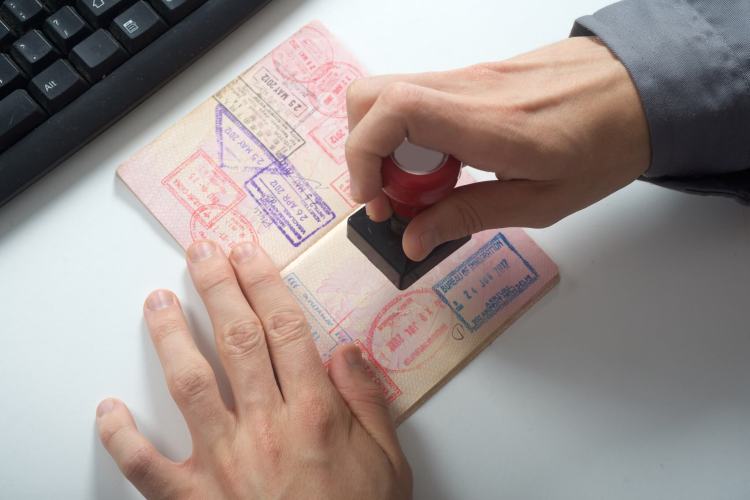Back in 2014, when it was clear that Congress was not going to pass bipartisan immigration reform, President Obama vowed to take whatever steps he could, short of legislation, to advance his immigration agenda, including making it easier for foreign entrepreneurs to work in the U.S.
On Tuesday, he made good on that promise: The U.S. Citizenship and Immigration Services (USCIS) published a final regulation that expands the use of the government’s “parole” authority to authorize an immigration benefit for foreign entrepreneurs who can demonstrate they will provide a significant public benefit to the United States as a result of economic growth and/or job creation. This new immigration program, called the International Entrepreneur Rule, is scheduled to go into effect on July 16, 2017.
This expansion of the government’s parole authority is a welcome development for foreign entrepreneurs, who have been frustrated by the lack of options available through the existing U.S. visa categories, which generally are not oriented to companies in startup mode.
To qualify, an applicant must be an entrepreneur who owns at least 10 percent of a startup venture (formed within the prior five years), is well positioned to advance the business, and can prove that the venture has substantial potential for rapid growth and job creation. They can prove this by demonstrating any one of the following:
1. receipt of investments of capital totaling at least $250,000 from U.S. investors (such as venture capital firms, angel investors, or startup accelerators) with a history of substantial investment in successful startup entities
2. awards or grants of at least $100,000 from federal, state, or local government entities with expertise in economic development, research and development, or job creation
3. other reliable evidence that s/he would provide a significant public benefit to the U.S.
The initial grant of parole will be 30 months, and parole beneficiaries will be able to apply for an additional 30-month renewal. Parole cannot be accomplished without making a physical entry into the United States. Accordingly, if someone in the U.S. on a visa applies for and receives approval of a parole application, s/he must exit the U.S. and re-enter with parole in order to assume this new status.
International entrepreneurs outside the U.S. may also apply, but as a practical matter, it may be difficult for them to meet the required criteria if they have not yet worked for a startup entity in the U.S. or if they have not worked lawfully for a startup entity.
In contrast to the very strict minimum wage requirements associated with the H-1B temporary work visa, there is no required wage obligation for the parole beneficiary, but to maintain parolee status the parole beneficiary must maintain a household income that is greater than 400 percent of the federal poverty line for his or her household size as defined by the Department of Health and Human Services (HHS).
In order to maintain parole status, parole beneficiaries will be required to update USCIS regarding any material changes.
The parolee’s spouse and dependent children (under 21) are entitled to apply for parole status and, if it is granted, to remain in the U.S. for the same period of time as the principal parole beneficiary.
Upon arrival in the U.S. on parole status, the spouse of the approved entrepreneur may apply for employment authorization.
The threshold investment and revenue amounts will be automatically adjusted every three years by the Consumer Price Index and the required amounts will be posted on the USCIS website.
As with any regulation, the incoming administration could take steps to rescind it. Hopefully, though, this rule will remain in place. The meager and strict U.S. immigration options for foreign entrepreneurs already drive a lot of talent to other countries that have more enlightened immigration options for entrepreneurs whose startups are driving growth and employment, not to mention solving important, real-world problems. While a legislative solution for a proper startup work visa or green card pathway would be preferable, this creative approach by the Obama administration to helping foreign entrepreneurs is a most welcome development.
Susan Cohen is founder and Chair of the Immigration Practice at the law firm Mintz Levin. She contributed to the U.S .Citizenship and Immigration Services (USCIS) regulations implementing the Immigration Act of 1990, the Department of Labor regulations implementing changes to the H-1B visa category, and the Department of Labor PERM labor certification regulations issued in 2004. She also helped draft the legislation which resulted in the Massachusetts Global Entrepreneur in Residence (GEIR) program. She has won awards for her political asylum work from the Supreme Judicial Court of Massachusetts, the Political Asylum/Immigration Representation (PAIR) Project, and the Massachusetts Lawyers Weekly.
VentureBeat's mission is to be a digital town square for technical decision-makers to gain knowledge about transformative enterprise technology and transact. Learn More

